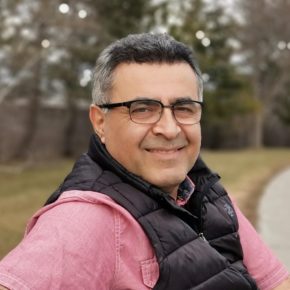Dr. Yeganeh is a developmental cell biologist with research experience and expertise in Lung development, Neonatal lung diseases and Lung injury. He completed his PhD in Cancer Biology, Department of Biochemistry and Medical Genetics, University of Manitoba. He then started postdoctoral training under mentorship of Dr. Martin Post at the Hospital for Sick Children in Toronto where he pioneered a new field of investigation by exploring autophagy and apoptosis pathways in lung development and mechanisms of ventilation-induced lung injury. His current research interests include understanding the mechanisms of lung development and neonatal lung diseases, injury and repair. In addition, he has an active interest in uncovering the molecular mechanisms regulating autophagy and apoptosis to develop new methods and therapeutic strategies, including regenerative medicine and preventive treatments.
other areas of research:
Autophagy, Lung Development, Neonatal lung diseases, Stem cell
Research Projects
-
Suspension-Induced Stem Cell Transition: A Non-Transgenic Method to Generate Adult Stem Cells from Mouse and Human Somatic Cells
23/10/2022
Our initial observations revealed that when fibroblasts are cultivated in suspension culture, they undergo a notable transformation in morphology and concurrently exhibit the expression of stem cell-associated markers. However, this intriguing phenomenon is transient, as these cells subsequently enter a phase of rapid apoptosis (anoikis or detachment-induced cell death). Therefore, we explored whether or not ASCs could be derived in larger numbers from suspensions of somatic cells cultured under non-adherent conditions. We initially studied mouse dermal fibroblasts (tail/ear fibroblasts, TEFs) [10] in novel suspension culture conditions together with newly formulated growth factor (GF)-enriched [11], serum-free culture media with the Rho-kinase inhibitor [12], designed to support the transformation, survival and proliferation of ASCs.
-
Thrombospondin-1 Plays a Major Pathogenic Role in Experimental and Human Bronchopulmonary Dysplasia
15/03/2022
TSP-1 inhibits alveologenesis in neonatal rats, in part via the upregulated activity of TGF-β1. Observations in human lungs suggest a similar pathogenic role for TSP-1 in infants at risk for BPD.
-
Autophagy is required for lung development and morphogenesis
04/06/2019
The current study aimed to investigate the occurrence of autophagy in the developing mouse lung and its regulatory role in airway branching and terminal sacculi formation. We found 2 windows of epithelial autophagy activation in the developing mouse lung, both resulting from AMPK activation.
-
Acid Sphingomyelinase Inhibition Attenuates Cell Death in Mechanically Ventilated Newborn Rat Lung
12/10/2018
Ventilation-induced ceramides promote autophagy-mediated cell death, and identifies SMPD1 as a potential therapeutic target for the treatment of ventilation-induced lung injury in newborns.

